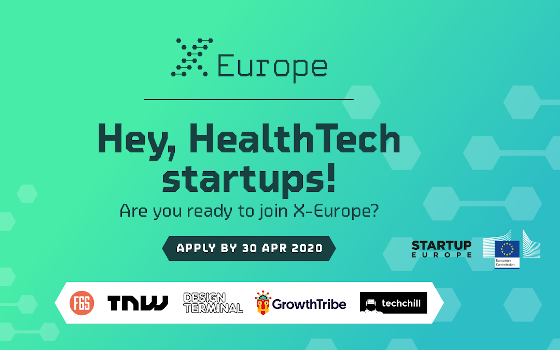X-Europe's first cohort focuses on HealthTech and BioTech is looking to boost 25 startups between May and November 2020 through matchmaking, training, and promotion. Additionally, X-Europe seeks to connect ecosystems across Europe and allow opportunities, companies, and capital to flow freely across the continent. All services of the X-Europe programme are free of charge thanks to Startup Europe.
25 selected deeptech startups get:
- Free entry and showcasing at The Next Web conference, 1-2 Oct 2020, Amsterdam
- Matchmaking with investors
- Building partnerships with corporations - your solution might be the solution to their business challenge
- Free in-person & online training, including market-leading courses from Growth Tribe
- One-on-one mentoring
- Jobs and talent matchmaking
- Media exposure
- Possibility to join the Acceleration week at Design Terminal (Budapest) and access TechChill's and TNW's community Incubators
All face-to-face activities have been booked for after summer time and you can join online services from the comfort of your home!
Applications are now open for Cohort 1 - HealthTech&BioTech
Apply here before 30 April: https://www.f6s.com/xeuropecohort1/apply
For further information, please visit:
http://www.xeurope.eu
